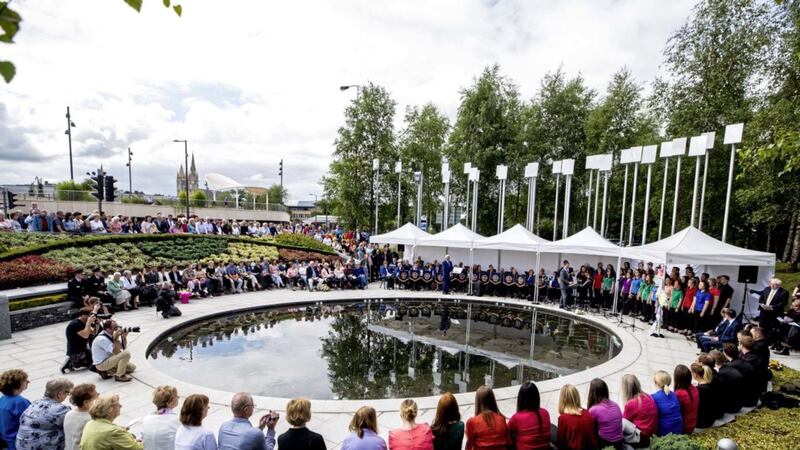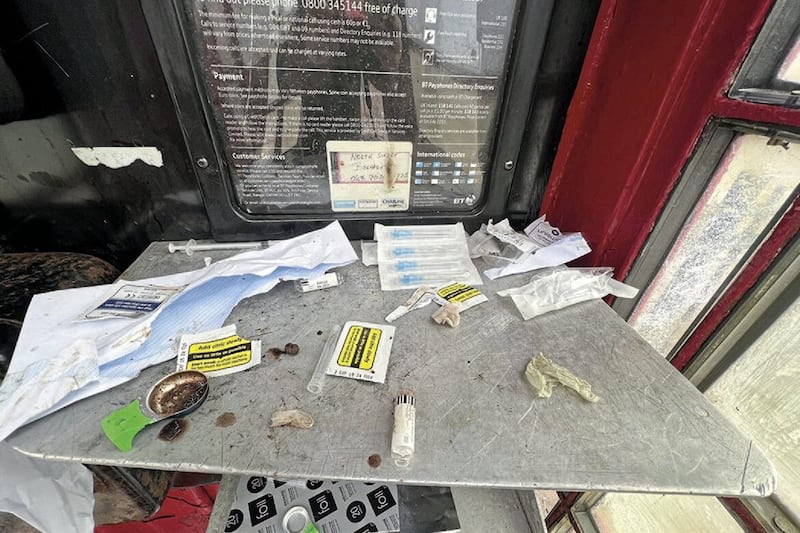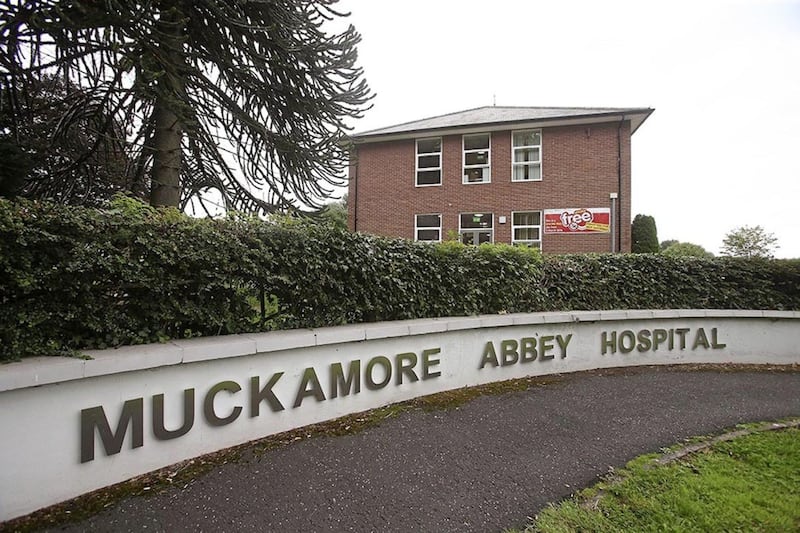ON A Saturday afternoon 20 years ago, a man was going to buy paint to decorate his home; a pregnant mother was taking her baby daughter and mother shopping; a woman was serving customers in her cafe and teenage boys were buying jeans or browsing trainers in a sports shop when a 500lb car bomb ripped through a quiet Co Tyrone market town.
The Real IRA bombing of Omagh was the greatest atrocity of the Troubles, claiming the lives of 29 people including Avril Monaghan, a mother pregnant with twin daughters.
Visiting Omagh last week, the impact of the bomb could clearly still be felt.
The glass peace monument, set where the car containing the bomb exploded, dominates Market Street. The memorial garden sits off one of the town’s busiest roads. Signs of the bombing are inescapable.
Paddy Quinn, one of the first firemen on the scene, has said he wasn’t able to walk down Market Street for years and would purposely take routes to avoid it. He said that every time he passes the memorial garden he thinks of the day when the explosion shattered his town.
Just seconds after he arrived at the bomb site, he met his own mother who had narrowly escaped the force of the blast. For hours he searched through the rubble of shops, knowing that he wouldn’t find any survivors.
Reporting on the details of the bombing last week, I was struck by how that horrific day had begun like any other.
That morning Avril Monaghan and her mother Mary Grimes had celebrated the Feast of the Assumption at St MacCartan’s Church; Philomena Skelton, who visited Omagh only twice a year, had gone with her husband and children to buy school uniforms; Alan Radford was helping his mother buy her weekly shopping – by the afternoon of August 15 1998 they were all dead.
In his most famous poem, Musée des Beaux Arts, the English poet WH Auden wrote that suffering “takes place/While someone else is eating or opening a window or just walking dully along”.
Auden’s poem describes Landscape with the Fall of Icarus, a painting by the Dutch Renaissance artist Pieter Bruegel the Elder.
In the foreground, a man is ploughing a field not far from a shepherd tending fat sheep. As the men work land by the sea, a ship is passing at full sail.
The only sign of Icarus, the boy who in Greek myth flew too close to the sun on his wax-and-feather wings, is a pair of white legs disappearing into the water.
Auden writes that “the ploughman may/Have heard the splash, the forsaken cry,/But for him it was not an important failure”.
Icarus may have died but the ploughman kept on at his work and the ship “that must have seen/Something amazing, a boy falling out of the sky,/Had somewhere to get to and sailed calmly on”.
So many horrendous murders and bombings happened during the Troubles that it’s easy to forget the details.
For years our newspapers and television screens showed a daily parade of funerals.
Photographs of parents and children lost in their grief were so commonplace that they became unremarkable.
People were murdered in their homes and on our streets while the rest of us were going about our days, “walking dully along”.
Yet so many victims have been unable to lead ordinary lives. For them, every second comes with the reminder that someone they loved has been taken from them.
Michael Gallagher, who has been the most high-profile campaigner for the victims, said his son Aiden left home to buy a pair of jeans and never came back. The last 20 years, he said, have been a “nightmare”.
The failure to set up proper processes to help victims is a national disgrace. It is completely unacceptable that some families have had to wait decades for inquests into the deaths of their loved ones. They needed a victims’ strategy years ago.
Faced with the continuing grief of the Omagh families and tens of thousands like them, the impasse at Stormont seems petty.
Issues including equal marriage and language rights are hugely important but they can be dealt with within a functioning administration.
The people who lost their lives at Omagh no longer have the luxury of caring about which flag to fly over a council office.
They were not given the chance to carry on with their ordinary, decent lives.








